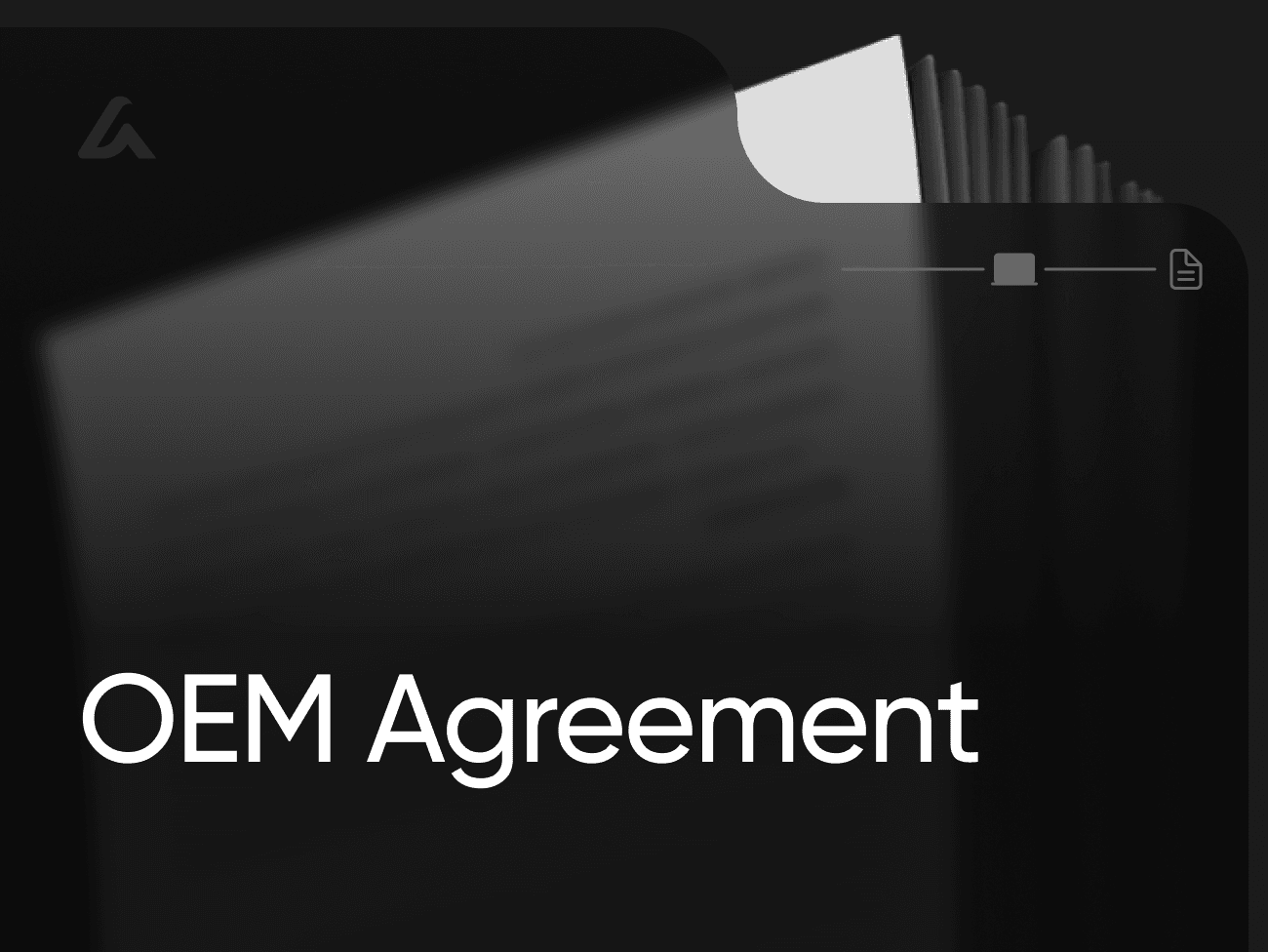AI Lawyer Blog
Vehicle Bill of Sale Guide: Ownership Transfer, Forms & Legal Use

Greg Mitchell | Legal consultant at AI Lawyer
3
Imagine selling your vehicle, only to receive a parking ticket months later for a violation you didn't commit. Or purchasing a car, only to find out it's been reported stolen. These scenarios aren't just hypothetical they happen more often than you'd think. This document serves as proof of the transaction and can be crucial for registration, taxation, and in resolving potential disputes.
You Might Also Like:
What Is a Vehicle Bill of Sale?

A Vehicle Bill of Sale is a legal document that records the transfer of ownership of a vehicle from the seller to the buyer. Without a proper Vehicle Bill of Sale, both buyers and sellers expose themselves to legal disputes, financial losses, and potential fraud. It includes essential details such as
Vehicle information (make, model, VIN, year)
Sale price and date of transaction
Buyer and seller details
Odometer reading
Signatures of both parties.
Vehicle Bill Of Sale represents one of the many templates available within the Bill of Sale category featured on our website.
Need a state-specific version?
California | New York | Texas | Florida | Illinois | Washington
Who Benefits Most from a Vehicle Bill of Sale?
A Vehicle Bill of Sale is essential for a wide range of individuals and situations — not just buyers and sellers, but also those involved in gifting, inheriting, or managing vehicle fleets.
Private sellers and buyers are the most frequent users. For example, someone selling their used car through Craigslist or Facebook Marketplace needs a bill of sale to avoid future liability or fraud allegations. Likewise, buyers need it as proof of ownership for registration and insurance.
Families gifting vehicles — such as parents transferring a car to their child — use a Vehicle Bill of Sale to document the transfer, especially when the recipient needs it for tax and DMV purposes.
Estate managers and executors handling a deceased person’s assets often need to formally transfer vehicle ownership using a bill of sale to satisfy legal and probate requirements.
Car collectors or hobbyists who frequently trade, sell, or buy vintage or specialty vehicles benefit from maintaining detailed transaction records, both for insurance purposes and legal clarity.
Fleet managers and small businesses use Vehicle Bills of Sale to maintain accurate records of ownership transfers within company assets — critical during audits or insurance claims.
Whether you're dealing with a casual sale or a legal transfer, this document helps ensure the transaction is transparent, enforceable, and fully documented.
Why You Need a Vehicle Bill of Sale in 2026?
With the increasing prevalence of online vehicle sales and digital transactions, the need for clear, legally binding documentation has never been greater. A Vehicle Bill of Sale ensures transparency and trust in these transactions, providing a safeguard against potential fraud and misunderstandings.
Stats show
In 2023, nearly 450,000 vehicles were sold in the U.S. with fraudulent odometer readings, costing consumers over $1 billion annually.
Rise in Auto Fraud Cases
With the rise of digital marketplaces and private sales, the risk of fraud has escalated. In 2020, there were an estimated 2.67 million auto fraud cases in the U.S. A Vehicle Bill of Sale provides a layer of protection against such fraudulent activities. Auto loan fraud is a growing concern, with Point Predictive estimating approximately $7.8 billion in fraudulent auto loans in the U.S.
In a notable case, a St. Louis man was sentenced to over 12 years in federal prison for a vehicle sale fraud scheme involving fake cashier's checks, defrauding over 100 individuals across five states.
Importance and Key Advantages
Legal Protection for Both Parties
A Vehicle Bill of Sale serves as a legally binding document that records the transfer of ownership. It provides clear evidence of the transaction, protecting both parties from potential disputes and legal complications.
Proof of Ownership and Transaction Details
This document includes essential details such as vehicle information (make, model, VIN, year), sale price, date of transaction, and buyer and seller details. It serves as proof of purchase and is often required for vehicle registration and taxation purposes.
Protection Against Fraud and Liability
In cases where vehicles are sold without proper documentation, sellers may remain liable for incidents involving the vehicle post-sale. A signed bill of sale provides evidence that the vehicle is no longer under the seller's ownership, protecting them from future liabilities.
Essential for Tax and Registration
In 2026, a Vehicle Bill of Sale is often required to calculate taxes and complete registration. It provides proof of the sale price and ownership transfer, helping both parties comply with tax laws and avoid legal issues.
Legal Importance and Context
Legally, a Vehicle Bill of Sale serves multiple purposes:
Proof of Ownership Transfer: It confirms that the seller has transferred ownership to the buyer.
Liability Protection: Protects the seller from future liabilities related to the vehicle.
Tax Documentation: Assists in calculating and documenting taxes owed.
In some states, a notarized Bill of Sale is required for the transaction to be legally binding
When Should You Use a Vehicle Bill of Sale?
A Vehicle Bill of Sale should be used in various scenarios, including
Private Sales: When buying or selling a vehicle without a dealership.
Gifting a Vehicle: To document the transfer and for tax purposes.
Out-of-State Transactions: To ensure both parties have legal proof of the sale.
Let’s say, if you're gifting a car, a Bill of Sale can help in documenting the transfer and may be required for registration in certain jurisdictions
Key Sections of a Vehicle Bill of Sale and How to Fill Them Out
When drafting a Vehicle Bill of Sale, ensure the following sections are accurately completed:
Personal Information: Full names, addresses, and contact details of both buyer and seller.
Vehicle Details: Make, model, year, VIN, colour, and odometer reading.
Sale Information: Purchase price, date of sale, and payment method.
Declarations: Statements confirming the accuracy of information and the transfer of ownership.
Signatures: Both parties should sign and date the document; notarization may be required in some jurisdictions.
Accurate completion of these sections ensures legal validity and protects both parties involved.
Practical Tips for Using a Vehicle Bill of Sale Effectively
Maintain Digital Copies: Store electronic versions for easy access and backup.
Verify Information: Ensure all details are accurate and complete before signing.
Understand State Requirements: Check if your state requires notarization or specific forms.
⚖️ Legal Tip: The Critical Post-Sale Steps Most Sellers Miss
A Vehicle Bill of Sale is just the first step in legally protecting yourself after selling a vehicle. According to the American Association of Motor Vehicle Administrators (AAMVA), sellers must take additional steps to fully terminate their liability:
File a Notice of Transfer: Most states require sellers to submit a formal notice to the DMV within 5-10 days of sale, even with a Bill of Sale. Failure to do this can leave you legally responsible for the vehicle.
Verify Title Transfer: The AAMVA recommends following up with your state's DMV 2-3 weeks after the sale to confirm the title was properly transferred. If it wasn't, you may need to file additional paperwork.
Document Everything: Beyond the Bill of Sale, experts recommend taking photos of the vehicle at the time of sale (showing odometer, condition, etc.), keeping all communication records with the buyer, and obtaining a receipt for any cash payments.
The Federal Trade Commission notes that these additional steps can be the difference between legal protection and significant liability if the vehicle is later involved in criminal activity or accidents.
📌 Real-World Case: The Consequences of Incomplete Documentation
In a 2023 case from Arizona, a family sold their 2007 Chevrolet Cobalt in 2017 but failed to officially transfer the title through the Motor Vehicle Division (MVD). Six years later, the seller’s daughter received a $500 fine and had her MVD account blocked after the vehicle was reported abandoned. Despite the buyer having possession of the car, the title remained in the family’s name because it was never properly submitted. Only after presenting expired insurance documents were the fines waived — but not without weeks of stress and bureaucratic hassle.
Source: Arizona driver received abandoned vehicle fee for car sold years ago – KPHO / AZ Family report
Key Takeaway: A Bill of Sale alone isn’t always enough — most states require you to file a sold notice or similar form with the DMV. Without it, you could be held responsible for violations or fees long after the vehicle changes hands.
🔑 Additional Insight: Digital Bills of Sale — The Future of Vehicle Transfers
As states modernize their systems, digital Bills of Sale are becoming increasingly accepted and in some cases preferred:
State | Digital Bill of Sale Status | Electronic Signature Accepted | Online Filing Available |
|---|---|---|---|
California | Accepted | Yes | Yes (through CA DMV portal) |
Florida | Accepted with restrictions | Yes | Yes |
Texas | Pilot program in progress | Limited | For dealers only |
New York | Fully implemented | Yes | Yes |
Michigan | Not yet accepted | No | No |
Benefits of digital documentation:
Instant timestamp verification
Easier storage and retrieval
Reduced risk of document loss
Faster processing with DMV systems
For the most current information on digital acceptance in your state, check your state DMV's website or contact them directly.
Expert Insights
“A bill of sale is the contract that's used most often for a car or other goods... it confirms transfer of title to the property and, in doing so, serves as evidence of a contract.”
— Richard Stim, Nolo
“A bill of sale shows that the car seller is not legally responsible for any damage or injury the buyer might cause... It protects the seller's auto insurance company as well from any accident claims.”
— Progressive Insurance
How AI Lawyer Creates Your Document (Step-by-Step)
At AI Lawyer, we believe that drafting legal documents shouldn’t feel like decoding a foreign language. Whether you’re a business owner, landlord, freelancer, or someone navigating a personal matter — you should be able to create a legally sound document without needing a law degree.
That’s why we built a document experience that works like a conversation, not a form. Here’s exactly how it works:
1. You Tell AI Lawyer What You Need
It starts with a simple question:
“What type of document do you want to create?”
You choose from our list of professional templates — whether it’s a rental agreement, contractor form, invoice, publishing contract, or anything else — and AI Lawyer immediately pulls up the structure designed specifically for that use case.
Behind the scenes, the system references U.S. legal standards and best practices to make sure you’re starting from the right foundation.
2. We Highlight the Key Sections
Instead of throwing the whole document at you, AI Lawyer breaks it down.
Each key component — like payment terms, deadlines, responsibilities, clauses — is briefly explained in human language so you know what it means before you fill it out.
It’s like having a lawyer on your shoulder saying,
“Here’s what this section covers, and why it matters.”
3. You Answer Simple, Targeted Questions
AI Lawyer asks you step-by-step questions — like:
Who’s involved?
What are the key dates or timelines?
What are the terms (payments, conditions, obligations)?
Do you need special clauses like confidentiality, termination, or jurisdiction?
Each question is directly linked to a block in the final document — so your answers go exactly where they belong.
4. The Document Builds Itself As You Go
On the right side of your screen, the full document builds in real time.
Every time you answer a question, a corresponding section is added — with legally sound wording, smart defaults, and editable fields.
You’re not just answering a form — you’re watching your document take shape.
This phased process helps:
Reduce overwhelm
Catch errors early
Ensure nothing is forgotten
5. You Edit and Customize Freely
Once all the inputs are in, the full document is unlocked for editing.
You can:
Rewrite any clause
Change formatting
Add or remove sections
Rephrase terms in plain English (or more formal legal tone)
The editor works like a Google Doc — intuitive, responsive, and flexible.
6. Your Final Document Is Yours to Keep
Download in PDF, DOCX, or copy to clipboard.
You can print it, email it, or send it for signature — and revisit your answers anytime to generate updated versions.
Why This Workflow Matters
Most template tools give you a blank form.
We give you a process — one that mirrors how a real attorney would walk you through the creation of a document:
Context → Input → Assembly → Review → Delivery
It’s not magic. It’s just a smarter way to get legal work done — without getting lost in the jargon.
FAQs
Q: Is a Vehicle Bill of Sale legally binding?
A: Yes, when properly completed and signed, it serves as a binding record of the transaction and can be used as legal evidence in disputes or registration.
Q: Can I create my own Vehicle Bill of Sale?
A: Absolutely. As long as it includes essential elements like buyer/seller details, vehicle info, sale price, and signatures, it's valid. Some states offer templates that meet local legal requirements.
Q: Do I need a Bill of Sale if I’m gifting a car?
A: Yes. Even without a monetary transaction, it formally documents the transfer and is often required for registration and tax purposes.
Q: Is notarization required for a Vehicle Bill of Sale?
A: In some states, yes. Jurisdictions like Louisiana and Montana require notarized signatures for DMV processing. Always check your local laws before submitting.
Q: What if the buyer never registers the vehicle?
A: You could remain legally liable for tickets or incidents. Always file a Notice of Transfer with the DMV to protect yourself after the sale.
Q: Can I use an electronic Bill of Sale with digital signatures?
A: Yes, in many states. Digital forms and e-signatures are increasingly accepted, especially when submitted through official DMV portals like California’s or New York’s.
Sources and References
Data on odometer rollback and consumer loss are drawn from the National Highway Traffic Safety Administration (NHTSA) odometer fraud guidance and state consumer-protection materials such as the Georgia Attorney General’s overview of odometer fraud, which estimate that more than 450,000 vehicles are sold each year with false mileage readings, costing buyers over $1 billion annually. Broader fraud and risk trends referenced in this article rely on industry analyses like Point Predictive’s Auto Lending Fraud Trends Report and federal enforcement actions, including the U.S. Department of Justice’s case against a St. Louis vehicle-sale fraud ring using fake cashier’s checks to defraud more than 100 private sellers. Practical guidance on using a Vehicle Bill of Sale, filing post-sale notices, and validating digital documents is informed by official motor-vehicle agency resources such as New York DMV’s “Buy, sell, or transfer vehicle ownership”, California DMV’s Notice of Transfer and Release of Liability FAQs, Washington’s “Sell a vehicle” instructions, and the federal E-SIGN Act on electronic signatures and records.
Final thoughts
A completed Vehicle Bill of Sale documents the transfer, supports registration/tax filing, and helps cut off post-sale liability (tickets, tolls). After signing, file your state’s Notice of Transfer/Sold Vehicle and confirm title transfer with the DMV.
Download the free Vehicle Bill of Sale template or customize one with our AI Generator — then have a local attorney confirm any notarization and DMV filing steps.
State-Specific Vehicle Bill of Sale Templates:
California | New York | Texas | Florida | Illinois | Washington
For broader context on forms and use cases, explore our Bill of Sale category.
You Might Also Like:



